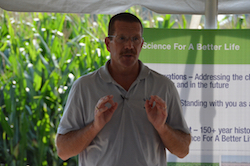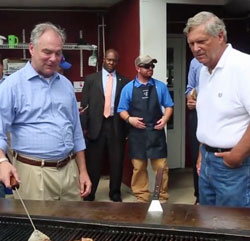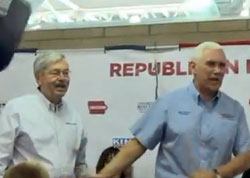 The U.S. Department of Agriculture has announced plans to purchase millions of pounds of surplus cheese to aid both hungry families and dairy producers.
The U.S. Department of Agriculture has announced plans to purchase millions of pounds of surplus cheese to aid both hungry families and dairy producers.
The purchase of approximately 11 million pounds of cheese, valued at $20 million, will assist food banks and pantries across the nation, while reducing a cheese surplus that is at its highest level in 30 years. The cheese will be made available through USDA nutrition assistance programs, while the action is also intended to help boost the stalled marketplace for dairy producers whose revenues have dropped 35 percent over the past two years. USDA also announced that it will extend the deadline for dairy producers to enroll in the Margin Protection Program (MPP) for Dairy to Dec. 16, 2016, from the previous deadline of Sept. 30.
USDA received requests from Congress, the National Farmers Union, the American Farm Bureau and the National Milk Producers Federation to make an immediate dairy purchase. Section 32 of the Agriculture Act of 1935 authorizes USDA to utilize fiscal year 2016 funds to purchase surplus food to benefit food banks and families in need through its nutrition assistance programs.
Farm Bureau president Zippy Duvall praised the move by USDA. “The USDA’s action will help alleviate the tough realities of the market and keep family farmers in business at a time when too many are leaving,” said Duvall. “More than 1,200 family dairy farms went out of business in 2015. We greatly appreciate USDA’s taking this action to help our beleaguered dairy producers.”
National Farmers Union (NFU) President Roger Johnson says the stop gap aid is too little to help the dairy industry. “NFU appreciates USDA’s continued commitment to dairy producers, especially within a very tight budget,” said Johnson. “The current environment, however, has left dairy farmers struggling with severe economic strain, and it requires a more robust response.” Johnson adds that NFU is urging Congress to help USDA continue to assist dairy producers as funding allows.
While USDA projects dairy prices to increase throughout the rest of the year the agency will continue to monitor market conditions in the coming months and evaluate additional actions, if necessary, later this fall.












